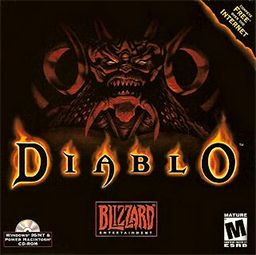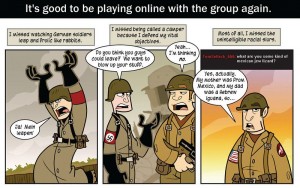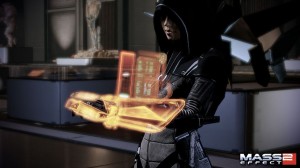Game:Price Ratios
When I was young, I bought computer games (or video games, in today’s nomenclature) with the belief, nay, the strongly justified belief, that a game would be a fairly complete or polished experience and that I would be enjoying the same experience as any of my friends who had the same game.
I held games to particular standards; if I believed that the game would give me less than 1 hour of enjoyable playtime for every £1 I spent on it, I would not buy it. If, once purchased, it had given me less than 1 hour of enjoyable playtime for every 50p I spent on it, I would be disappointed. Some inflation has happened since then, but I still judge £1 per hour to be a minimum for a game to be worth purchasing. Of course, I have far more money than when I was little, so it works out despite the inflation. Arbitrary, perhaps, but it fits in neatly with my instinctive feelings towards the value of a game.
When it comes to many games, this system is not flawless, so further elaboration is required.
1) Deliberate replayability
Diablo was not designed to be played through just once – far from it. Designed with random generation of levels and items, along with three playable classes with distinct playstyles and three difficulty levels to recycle content, playing the game from character creation to killing the end boss (Diablo, funnily enough) misses the point of the game, somewhat. In fact, given the saving style of Diablo, one would have to go through the game in one sitting in order to avoid all repetition.
When judging such games, then, I have to draw very heavily upon the enjoyable qualifier when judging this in terms of hours spent playing. If the task I repeat is sufficiently enjoyable (which I found killing hordes of hellspawn to be), then it counts towards the total. After a while the repetition would become far too tedious, of course, so it tends to work itself out naturally.
2) Multiplayer
Most of the games I enjoy, I enjoy playing alone. This works out quite well for many of my RPGs, as they aren’t that well suited to playing in multiplayer at all – if they even have such a component. For other games such as Diablo, of course, multiplayer is an integral feature. This comes down to a simple matter of judgement: if I like the multiplayer and I consider it to be well supported by the game, then I’ll include it. This second qualifier is important, and is not something that can necessarily be controlled by the developers. Sometimes it is just badly implemented – the multiplayer in the Baldur’s Gate series was so poor that I didn’t even consider it when reviewing it, for instance.
In other cases, it is simply a matter of the other players themselves. I greatly enjoyed the multiplayer component in Diablo, Quake and Unreal Tournament back when I played them. I despise it in the Call of Duty game franchise, but this has far more to do with the people who play it (and games generally, nowadays) than the developers. This aspect can basically be summed up by saying that there is an inverse correlation between my enjoyment of the multiplayer aspect of a game and a combination of the average frequency of griefing1 and the average rate of niggerfaggots per minute (nfpm)2 I can expect to experience.
(Additionally, I think it is terrible that the standard dictionaries of word processors haven’t caught up to modern gaming terminology and included ‘griefing’ and ‘niggerfaggots’ in them. Furthermore, ‘multiplayer’ and ‘online’ aren’t even covered. Shocking.)
I will probably return to these multiplayer issues in another article at some point in the future, but for now it is sufficient to say that I typically do not consider multiplayer in my pricing evaluation for games which are not MMOs. This discriminates against multiplayer games quite heavily, but that suits me fine.
3) Player-generated content
Some games rely heavily on player-generated content to make them truly shine. Half-life is probably one of the biggest for this, but due to my personal gaming preferences, I tend to use Oblivion and its many fantastic mods (PC only) and StarCraft with its enormous map-creating community for this.
When considering a game like this, I generally include the quality/amount of enjoyment derived from player-generated content when thinking about purchasing the game. (When attempting to judge the game for a review, however, I only tend to consider the player-generated content when it was directly encouraged and facilitated by the game’s creator. Here, for instance, StarCraft does very well and StarCraft 2 does appallingly.)
DLC means Money
Now that my main criteria is defined and expanded upon, let’s discuss Downloadable Content (DLC). Just in case you are unaware of what that is, DLC is (additional) content for a game that can be downloaded. Typically, DLC refers to official content, as opposed to unofficial content (more properly called mods (modifications)). Also typically, DLC costs money. Often, many monies are required. Let us take the infamous incarnation of the overpriced DLC: Oblivion’s Horse Armour DLC.
A simple search on Google can let you in on the controversy that was stirred up by this, but simply put, this was a DLC that added a few useless, slightly pretty reskins for your character’s horse in Oblivion accessible from a very short quest, and cost a whopping $2.50 (roughly £1.50) at the time of release. Under my above standards, this is overpriced by, roughly, a factor of 10. (I am very generously assuming that the quest requires about 5 minutes to complete, and that 5 minutes of enjoyment could be derived from having a prettier horse. Pretty graphics are very difficult to quantify in units of time, but ultimately, this horse armour isn’t that pretty, so 5 minutes seems a safe bet.)
Remarkably expensive – and profitable. “Not a problem,” you cry. “I simply won’t buy this DLC, so there’s no harm done!” If only ‘twere so simple. Firstly, many other people will buy that DLC, thus voting with their wallets and demonstrating that good value is not necessary for a purchase to be made. Secondly, it creates the insidious sensation of not playing the same game as those around you.
If I play my game, I may be perfectly happy not having horse armour. In fact, I may be perfectly happy even if I hear of it, but decide not to buy it. I then see a friend with it, however, and suddenly feel inadequate – I’m not playing the complete game. I am not having the full experience. For horse armour, this may be a little difficult to grasp, but another example can show it better, this time from Mass Effect 2.
In this case, the DLC I will point out is called ‘Kasumi – Stolen Memory’. In fairness, it’s quite fun, and adds a single mission and a new character, which is good content. Now that that I’ve stopped being fair, this DLC costs 560 Bioware points (roughly £4.50), and will probably entertain me for about an hour, generously. Let’s assume that it has perfect replay value, which puts it at 2 hours, making it still twice as expensive as my preferred rate.
On top of that, and actually more annoyingly, it’s far more expensive per hour than the original game is per hour. How is it that the original game costs about £30 – including game design, graphics, etc. – and gave me at least 30 hours of enjoyable gameplay from a single run of the game (so discounting replayability), yet a little expansion with far less background work required has below 50% of the value?
One explanation for this is that the main game is a loss leader: it is designed to be less expensive and profit is expected to be driven from the DLC. I’ve not seen any evidence for this, and I don’t believe it to be true. Even if it were true, I’d prefer to just pay proper/fair price for the main game and for the DLCs later. Perhaps it is due to my British origins that also lead me to hate the practice of compulsory tipping and excluding VAT from the display price. Regardless, I would prefer to pay the proper price up-front and just avoid the obnoxious obfuscation.
Tiered Gaming
This overarching complaint is what led me to discuss this DLC in particular – tiered gaming. I may not mind not purchasing and thus not playing the DLC, except that people around me do have it. I’m not playing the same game as them; I’m not playing the complete game; I’m not playing the same level of game as my comrade, so I must buy this new shiny add-on. Insidious, effective, and I dislike it as a general principle – even if I would like to consider myself insusceptible. We don’t have to play the game with all the extras, of course, nor should we feel like we are having any less of an experience (after all, we get what we pay for), but there’s no denying that this feeling exists and that gaming companies are capitalising on it.
Of course, such a sensation of having the complete game has long existed in some form, as games have had expansions released for them for a long time. The difference, in my view, is not only were those Expansions far more substantial and typically better value, but they lacked the same insidiousness. As modern DLCs are purchased via so-called microtransactions (another word not present in my dictionary), they are designed to avoid causing the impression of spending real money. Expansions were honest and of good value, whereas I believe DLCs to not be, on the whole. They’re also not exclusive to particular promotions.
Specific kinds of DLC are only available under certain conditions, and Mass Effect 2 is a good example of this, yet again. There were a few in-game items for Mass Effect 2 that can only be obtained by finding codes from cans of a particular soft drink, and only during the run of the promotion. Not even money is enough to play the full game! Made even worse is the fact that one of these items is arguably the best of its type in the entire game.
Worse still, as I recently discovered, the experience you can have in a game now depends on where you buy it from, as is the case with Mortal Kombat II.
Another example of this is special/premium/pre-order editions with additional content. I, for one, don’t mind the specific shiny nature of special editions which come with real-life thingymebobs such as maps, ‘Making Of’ documentaries and prettier covers, but having one-time-only editions of games which come with additional content grates quite a lot. If I buy a game later (especially much later, in many years time), should I have any less of a fun/complete experience simply due to time elapsing?
It’s worth noting that this last one isn’t anything new, though – even Baldur’s Gate 2: Shadows of Amn suffered from this, with two special merchants that could only be obtained by pre-ordering. Thankfully, the protections on this weren’t very strong, and the files for this were proliferated throughout the internet, but neither this nor the knowledge that it is not a new practice makes it any less of an irritating practice.
Another factor reason is, perhaps, another aspect of nostalgia. In the past, we had these things called content patches. These were patches which, in addition to fixing bugs, contained new content. This content was often stuff intended to be released in the original game, but not included due to (time) constraints. Once such things were free, and now they are not, and I find it irksome.
In-game Influences
DLC is not just irritating in the real world, either. As mentioned, one of the promotional DLCs for Mass Effect 2 was extraordinarily powerful, which potentially has an effect on the playability. Other DLC can be much worse, however, and in-game items earned through extra-game methods can be particularly disruptive. Starting a game with some overpowered item due to a promotion (or even DLCs such as the Dragon Age: Origins DLC Leliana’s Song, which takes places outside of the regular game) can be quite annoying, as the game is less enjoyable with the aid of this new item – but on the other hand, it was earnt, so it feels like it should be enjoyed.
Even those items which are appropriate in power can be irritating if there is no good reason for them being there, which is mainly a problem in RPGs. Starting a game as a poor peasant and having a magical item is somewhat jarring.
Whilst the above problems can be jarring, other things can be damn right destructive in terms of immersion. At the risk of complaining about Bioware’s DLC practices even more, Dragon Age: Origins has the most intrusive DLC of any game I have played (although I’m not optimistic enough to think it is the worst one out there, especially not in the future). Any zones which were added from a DLC have special golden map icons to distinguish them from the normal stone-gray icons used for other areas. I hate this, as the last thing I want to do whilst attempting to immerse myself in a game is be reminded that I’m only playing in this particular area because I paid extra for it. It doesn’t add any game value, detracts from immersion and isn’t really relevant. Why should I care that this is a paid area?
Worse still, if you haven’t paid for a DLC, you will still have some DLC-related NPCs sitting around quite obviously, and if you try to talk to them they will actually tell you to buy the related DLC. I may have hated the golden map icons, but I despise this. The first time I saw this, it utterly broke my immersion. I suspect that this is the point, as well, as it forces me to either spend money on the DLC or be forever cursed with this annoying reminder and destroyer of immersion.
What next?
In truth, I do not object to paying for additional content intrinsically, merely the current state of DLC in the gaming world. I think the piece-meal aspect of DLC is the most irritating single issue to pin down, as it:
- Cloaks the sensation of spending money due to microtransactions
- Lowers the value due to the microtransaction cost being greater than the playtime of the content
- Creates less good content, in part because content cannot be integrated into the rest of the game as effectively due to its small size
If developers are that insistent that they continue to make this extra money after a game’s release, perhaps they should consider developing several larger expansion-esque packets and essentially continuing a game’s development, rather than simply placating us with little tidbits.
Am I ranting and predicting the doom of the world? Perhaps, but even Codemasters predict a time when games are intentionally released in an incomplete state. I do not wish to see this, and would like to be safe in the knowledge that my gaming experience is as good as it could be without receiving nags that there is just a little bit more content I should be buying.
Note1: ‘Griefing’ is the term given for being unpleasant to another player in a manner which is outside of the spirit o the game – but is often within the rules of the game (Wikipedia page on griefing).
Note2: Thanks go to citizen511 for describing the most useful metric of niggerfaggots per minute, along with an example of its use in evaluating game types.





Given how successful the model is, I’m pretty sure it can only get worse…
And this is why, these days, you wait at least a year before purchasing a high-profile game from a major studio. It seems like every fucking thing they release is unfinished in one way or another, and refusing to buy the game until you can get the entire game, the way it was supposed to be in the first place, will save you both money and frustration.
Civ 5, I’m looking at you in particular.
I should point out that amidst all the DLC problems mentioned in Dragon Age Origins, BioWare did a commendable job of releasing a great (IMHO) traditional full expansion pack (DAO Awakening).
I think we’d all agree that we’d like to see more content of that scale and less of it in small DLC packs.
Also, it’s hard to count The Stone Prisoner DLC for DAO against BioWare because it was massively integrated into DAO (contrast that with Katsumi and Zaeed in ME2 who have little outside of their loyalty missions) and you get it free when you buy a new copy anyway (same with Zaeed, btw). (Also, Shale is awesome.)
So to grade BioWare’s first-party post-release support for their games:
DAO: B+
ME2: C+
ME1: C
KoTOR: Nothing (AFAIK)
Baldur’s Gate 2: A
Baldur’s Gate 1: (before my time)
Compare to Valve (on the PC all their DLC is free):
L4D2: A+
L4D: A+
Team Fortress 2: A++
Portal: N/A
Half Life 1/2/Episodes: ? (Depends on how you slice it)
Post your own grades below. :-)
I just read up on Mass Effect 3 and they have managed to make things worse. Apparently the start of Mass Effect 3 is based on the end of one of the missions from the DLC from Mass Effect 2..
It’s just sad to remember a time when game companies would actively continue making map packs for games and releasing them for free. Westwood was excellent about this with Red Alert/Red Alert 2, Epic released all sorts of goodies for UT…